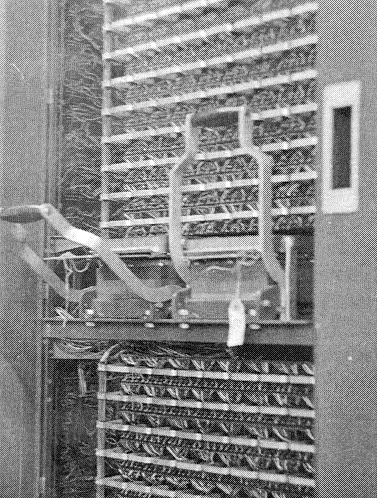
Ever wondered what happens to all those spare "bits" which fall off the end of general purpose registers when you SHIFT LEFT or SHIFT RIGHT? Well, here’s a short segment from a 1975 IBM Computer Operator’s Training Manual ....

7.2 SHIFTED BIT RETRIEVAL
Under the ACP operating system on our IBM 370 range of computers, the SHIFT instructions often lead to bit loss. ‘Ones’ which are shifted off either end of a general purpose register fall down special electromagnetic channels into a collection tray just below the bottom of core.
During peak processing periods this tray needs to be emptied every half an hour to avoid overflow.
This is a fairly specialised task as ‘ones’ have a positive electrical charge and a full tray of ‘ones’ can give you quite a jolt if you are not careful. It is advisable to wear a rubber suit (Order No. IBM R0170-1124-98 specify size small, medium or large and colour brown, purple or orange) when emptying the ‘ones’ tray.
Used ‘ones’ can be disposed of easily in any plastic dustbin, or used to re-charge fluorescent light bulbs.
‘Zeroes’ have very little substance and no electrical charge at all, and evaporate on contact with air, as soon as they leave the register.
Fig 7.2 To remove ‘ones’ tray, lower handles and pull. Refitting tray is an exact reversal of this procedure.
With the advent of the IBM 3090/280S machine and the TPF operating system a facility to recycle the ‘ones’ was introduced. Some software, called RECOUP, was written to re-incorporate the ‘ones’ back into the computer system without any further need for tray-removal or rubber-ware. The use of RECOUP improved the efficiency of the system and meant that a 5 Amp fuse could be used instead of 13 Amp, with the added advantage that overflow was almost entirely eradicated.
Further refinements to RECOUP for TPF4 meant that ‘zeroes’ could be captured before they evaporated and also recycled through the system. This major enhancement has reduced system down time by nearly 3% and already saved TPF users several million dollars.